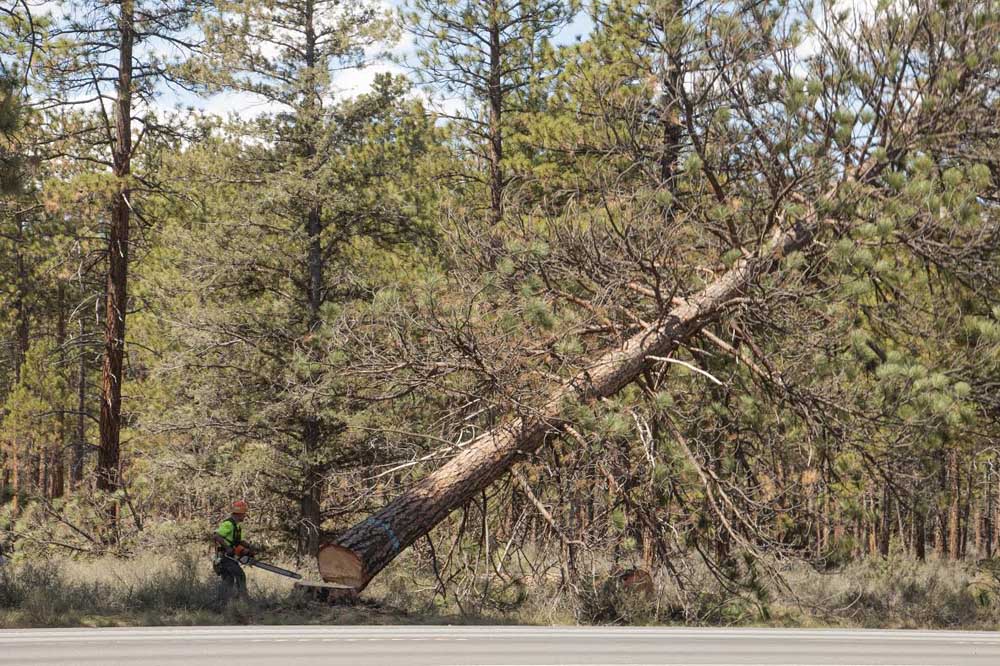Oregon restricts herbicide responsible for tree deaths near Sisters
Published 12:00 am Friday, May 10, 2019

- A contractor cuts down a tree April 29 next to U.S. Highway 20 near Sisters. The tree was killed by the herbicide Perspective, use of which will be restricted, the Oregon Department of Agriculture said Thursday . (ODOT/Submitted photo)
Use of an herbicide that caused the death of more than 2,000 trees near Sisters will now be restricted despite objections from agrichemical giant Bayer AG.
The Oregon Department of Agriculture said Thursday that it will immediately begin severely restricting the use of herbicides containing the chemical aminocyclopyrachlor, or ACP. Regulators found ACP was the main ingredient that killed trees near Sisters from 2013 to 2015. The decision was released the week after U.S. Forest Service contractors started cutting down the dead trees.
This makes Oregon the first state to limit the herbicide on a statewide basis.
Regulations were meant to go into effect in March but were postponed after Bayer, which manufactures the herbicide under the name Perspective, filed for a delay.
The regulations prohibit using the chemical in wildlife management areas and make permanent temporary restrictions on its use in right-of-ways for roads, highways, railroad tracks, bike paths and more.
The herbicide gained notoriety in Central Oregon after contractors selected by the Oregon Department of Transportation chose Perspective in 2012 for a multiyear project to kill weeds along a 12-mile section of U.S. Highway 20, northwest of Sisters.
A couple years later, employees from the Forest Service noticed browning needles and other signs of declining health among ponderosa pines and other trees in the area. Testing showed that ACP was present in the dead and dying trees. Subsequent reviews by the Forest Service confirmed the problem was more severe than originally believed, and the agency announced plans in February to remove about 2,100 ponderosa pines in the area.
Separately, the Oregon Department of Agriculture last year began a new investigation of ACP’s impact statewide, in part because of the compound’s effect in Sisters and other, smaller sites in Central Oregon. After the agency introduced a temporary ban last fall, it led several public meetings in Central Oregon and elsewhere as part of its process to devise a new, permanent rule.
The agriculture agency announced in late March that it would reopen its public comment period on the proposed rule in response to a request from Bayer to delay implementation two days before the new rule was set to take effect.
In a letter dated March 20, Bayer called on ODA to postpone the rule for 90 days, in order to give the pharmaceutical company “sufficient time to provide additional facts, data and arguments” into the public record.
“Bayer anticipates that if ODA takes into account the full record … ODA will withdraw the proposed permanent rule or, at a minimum, re-purpose it with a significantly revised scope,” the letter reads.
The letter cited an obscure portion of Oregon statute that requires agencies to delay implementing rules for between 21 and 90 days if an interested party requests it under specific circumstances.
According to the ODA, the new, permanent rule prohibits byproducts of ACP-affected trees from being used in compost, mulch or animal bedding that will be used in compost or mulch. The rule is effective immediately.






